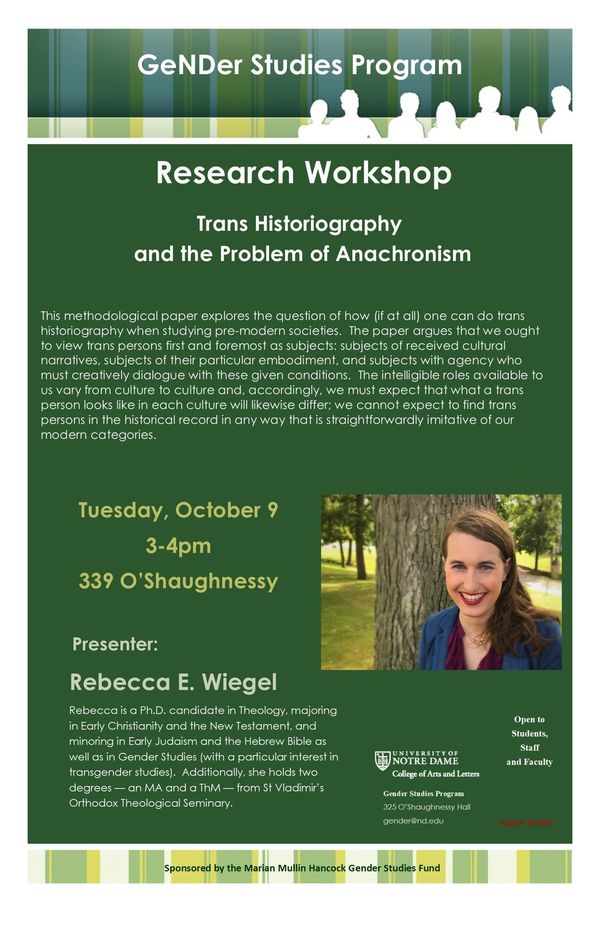
Trans Historiography and the Problem of Anachronism
Author: Rebecca E. Wiegel
Tuesday, October 9
3-4pm
339 O'Shaughnessy
This methodological paper explores the question of how (if at all) one can do trans historiography when studying pre-modern societies. The paper argues that we ought to view trans persons first and foremost as subjects: subjects of received cultural narratives, subjects of their particular embodiment, and subjects with agency who must creatively dialogue with these given conditions. The intelligible roles available to us vary from culture to culture and, accordingly, we must expect that what a trans person looks like in each culture will likewise differ; we cannot expect to find trans persons in the historical record in any way that is straightforwardly imitative of our modern categories. Ultimately, this paper will therefore argue that a trans person is someone who seeks or desires to transition from one category of sexed or gendered intelligibility to another category of sexed or gendered intelligibility, or someone who seeks or desires to transition from intelligibility to unintelligibility because of the inadequacy of their culture’s categories for them. In its conclusion, this paper will apply the argued-for criteria to Matt 19:1–14’s opposition between men and non-men (women, eunuchs, and children) to ask if those who “have made themselves eunuchs for the kingdom of heaven” ought, on any level, to be considered as trans.
Rebecca is a Ph.D. candidate in Theology, majoring in Early Christianity and the New Testament, and minoring in Early Judaism and the Hebrew Bible as well as in Gender Studies (with a particular interest in transgender studies). Additionally, she holds two degrees — an MA and a ThM — from St Vladimir’s Orthodox Theological Seminary. Her research generally tends towards examining how religion interprets, transmits, and constructs structures of gender and sexual difference, though she also has a broader history in the general social history of late antiquity. Currently, she is writing a dissertation on the Life of St Matrona of Perge, and has also done work on Paul’s sexual ethics in 1 Corinthians 7 as well as on Irenaeus’ Demonstration of the Apostolic Preaching.